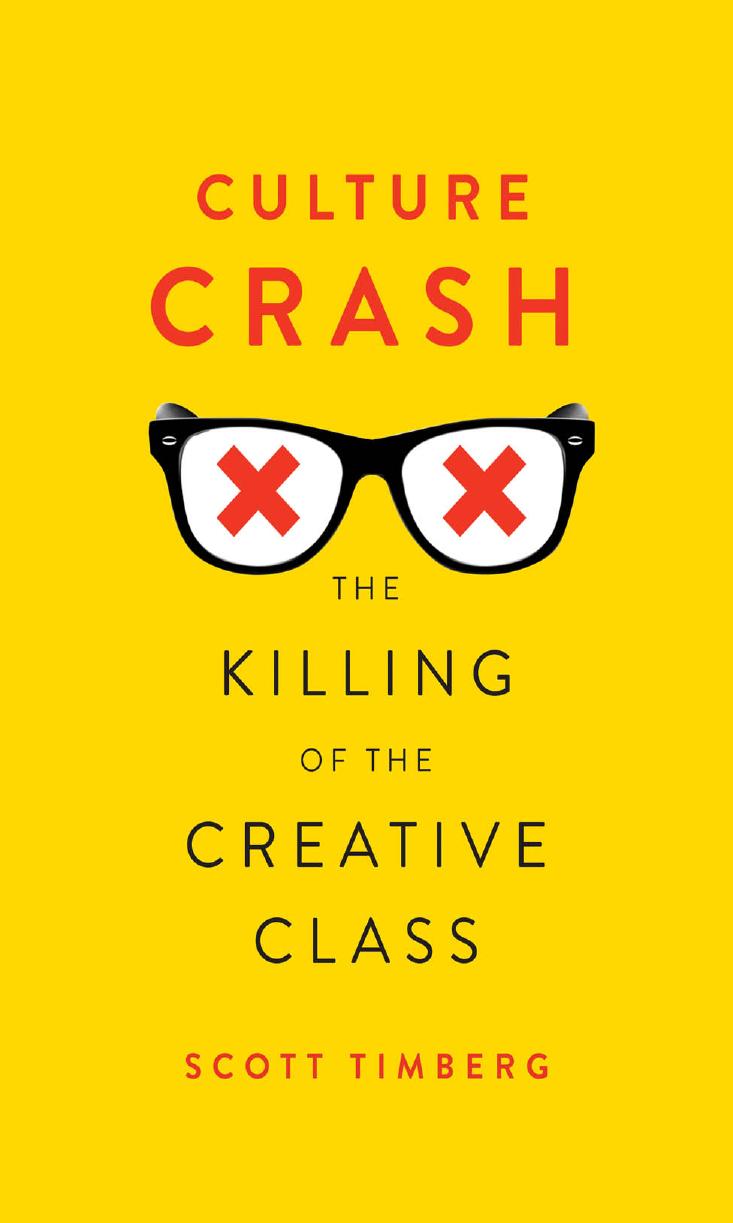Culture Crash: The Killing of the Creative Class by Scott Timberg

Author:Scott Timberg [Timberg, Scott]
Language: eng
Format: epub, pdf
Tags: 21st Century, Economic Disparity, History, Non-Fiction, Popular Culture, Social Classes, Social Science
ISBN: 9780300210651
Google: skTwBQAAQBAJ
Amazon: 0300195885
Publisher: Yale University Press
Published: 2015-01-13T00:00:00+00:00
7
THE END OF PRINT
What Orwell feared were those who would ban books. What Huxley feared was that there would be no reason to ban a book, for there would be no one who wanted to read one. Orwell feared those who would deprive us of information. Huxley feared those who would give us so much we would be reduced to passivity and egoism. Orwell feared that the truth would be concealed from us. Huxley feared the truth would be drowned in a sea of irrelevance.
—Neil Postman, Amusing Ourselves to Death
THE LUSH JUNGLE VILLAGE OF Macondo, with its shards of ice like diamonds and stones like dinosaur eggs, and the woman who levitated to heaven; the Great Plains and dry Nebraska prairies of the pioneers; rough dogs pulling sleds across Alaska’s tundra; America’s open road of fellowship and possibility, from the Brooklyn docks to the waves of the Pacific; a woman on a bridge in World War I Milan, selling roasted chestnuts.
They’re all images we have because of novelists and poets—Gabriel García Márquez, Willa Cather, Jack London, Walt Whitman, Ernest Hemingway—who did some of their crucial early work writing for newspapers and magazines. Since the 1960s, the alternative press has produced its own talents, and we could add nearly an entire recent generation of British writers—Martin Amis, the late Christopher Hitchens, and James Fenton among them—who came up through the New Statesman alone. This list goes on forever. Suffice to say, journalistic training has been a crucial stage, and sometimes more than that, for numerous imaginative writers, allowing aspiring or apprentice novelists or poets to see parts of the world that would otherwise be unavailable to them, to learn to think critically about wars and crime and politics, or simply to sharpen their writing of sentences, deepen their sense of the language.
Journalism has a deceptive relationship to the creative class. The man in the fedora with the press card in its brim seems far removed from the composer of symphonies, the painter of canvases, or even the record-store dude in his vintage duds. But newspapers and magazines have not only served as training grounds, they’ve been part of the same ecology as publishing houses, museums, and concert halls: critics and cultural journalists have helped shape culture and bring prestige to its makers for five centuries. And increasingly, the plight of a newspaper reporter, magazine illustrator, or photojournalist has followed the same gloomy trajectory as the rest of the creative class. Despite superficial differences—journalists are less likely to have tattoos than indie rockers—people who work for publications fit very squarely among creatives. However pragmatic they may have seen themselves as in decades past, in the twenty-first century, journalists are nearly as likely to be struggling or underemployed as a modern dancer, cellist, or stage actor. Journalists are caught in the same trap as the “content creators” they chronicle. And while the high-end literary journalist or art critic sits most comfortably next to a playwright or a poet, all reporters worth their salt are first and foremost storytellers.
Download
Culture Crash: The Killing of the Creative Class by Scott Timberg.pdf
This site does not store any files on its server. We only index and link to content provided by other sites. Please contact the content providers to delete copyright contents if any and email us, we'll remove relevant links or contents immediately.
| Coloring Books for Grown-Ups | Humor |
| Movies | Performing Arts |
| Pop Culture | Puzzles & Games |
| Radio | Sheet Music & Scores |
| Television | Trivia & Fun Facts |
Everybody Lies by Seth Stephens-Davidowitz(1704)
You're Not Listening by Kate Murphy(1621)
Sex, Drugs, and Cocoa Puffs by Chuck Klosterman(1273)
The American Scene by Henry James(1252)
The Attention Merchants by Tim Wu(1245)
Empire of Illusion by Chris Hedges(1226)
Simulacra and Simulation by Jean Baudrillard(1216)
The Caped Crusade by Glen Weldon(1108)
The House of Kennedy by James Patterson(1106)
Sense of Wonder by Bill Schelly(1081)
Predictably Irrational by Dan Ariely(1037)
Fast Food Nation by Eric Schlosser(1032)
The 50th Law by 50 Cent & Robert Greene(1008)
Free Women, Free Men by Camille Paglia(961)
What the Dog Saw: And Other Adventures by Malcolm Gladwell(918)
At Home by Bill Bryson(911)
Thank You for Arguing (Revised and Updated) by Jay Heinrichs(882)
Need to Know by Timothy Good(872)
Propaganda by Edward L. Bernays(862)
